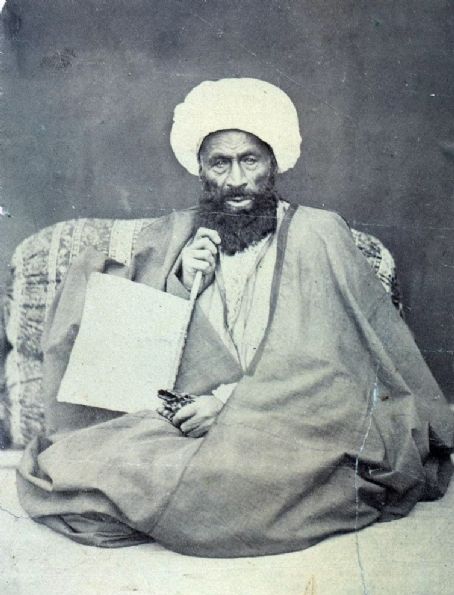Mulla Ali Kani, an eminent Shia scholar and theologian, emerged during a critical period of Islamic thought. His teachings have not only contributed significantly to the Shia intellectual landscape but also prompted a re-evaluation of many contemporary theological and ethical concerns. His profound insights invite seekers of knowledge to delve deeper into the complexities and beauties inherent in Shia Islam.
In exploring the teachings of Mulla Ali Kani, it becomes essential to understand the socio-political milieu of his time. The sociopolitical fabric of the 17th century, characterized by upheaval and fragmentation, served as a backdrop against which Kani articulated his philosophies. Amidst the tumultuous landscape, his scholarly works resonate as a beacon of hope, calling for unity, understanding, and introspection within the Muslim community.
Mulla Ali Kani’s religious philosophy emphasizes the intrinsic relationship between reason and revelation. His logical approach to theological discourse advocates for the utilization of rationality to comprehend divine edicts. This intermingling of intellect and faith is vital, as it fosters a community that does not eschew inquiry but embraces it as a means to strengthen belief. His innovative stance encourages individuals to engage critically with Islamic texts, fostering a culture of thoughtful discourse in religious practices.
At the heart of Kani’s teachings lies the concept of Imamate, which holds that the Imams are divinely appointed leaders endowed with both spiritual and temporal authority. His elucidation of the roles and responsibilities of the Imams invites contemplation on ethical leadership within contemporary contexts. The notion that these leaders embody the quintessence of justice significantly shapes Shia identity, urging adherents to aspire for a just society reflective of Imami principles.
Moreover, Mulla Ali Kani’s writings on ethics impart invaluable lessons on personal morality. He advocates for the pursuit of virtuous conduct, emphasizing traits such as honesty, generosity, and humility as central to an Islamic way of life. In a world increasingly fraught with moral ambiguity, his ethical framework serves as a guidepost, urging individuals to embody these virtues in their daily interactions. Kani’s writings thus entail a transformative potential, encouraging adherents to rethink their moral compasses in light of divine expectations.
Furthermore, his interpretation of Islamic jurisprudence, or fiqh, demonstrates an adroit balance between tradition and modernity. Kani’s comprehensive analyses of legal principles illustrate a judicious application of Islamic law that accommodates changing societal norms. This flexibility is particularly significant, as it opens up pathways for dialogue among varying schools of thought within Islam. By advocating for an adaptable legal framework, Kani's approach fosters inclusivity, facilitating a dynamic engagement with the ever-evolving fabric of society.
Mulla Ali Kani’s emphasis on education also warrants closer examination. He believed in the fundamental importance of acquiring knowledge, positing that enlightenment is a divine obligation for every believer. His teachings encourage a proactive approach to learning, advocating that informed individuals are better equipped to navigate the complexities of faith and existence. In an age marked by rapid information dissemination, this timeless message remains profoundly relevant, calling for the cultivation of a well-rounded and educated community.
Equally noteworthy is Kani’s perspective on interfaith relations. His writings reveal a discernible appreciation for theological diversity, which he approached not as a barrier but as an opportunity for enrichment. Kani invites followers to engage in thoughtful dialogue with other faiths. In doing so, he underscores the importance of building bridges across diverse traditions, thereby fostering social cohesion and mutual respect. This enlightened worldview encourages adherents to seek common ground while maintaining their distinct religious identity.
In assessing Mulla Ali Kani’s contributions to Shia thought, one cannot overlook the artistic and literary dimensions of his legacy. His eloquent prose and captivating narratives enhance the accessibility of his teachings, allowing a wider audience to engage with profound theological concepts. This dedication to aesthetic expression complements his intellectual endeavors, unveiling the inherent beauty within the complexities of Islamic theology.
Furthermore, Kani’s teachings transcend religious boundaries, offering universal lessons applicable to contemporary issues. His emphasis on social justice, ethical leadership, and cooperative dialogue resonates profoundly in a world fraught with division and discord. As society grapples with existential challenges, the lessons derived from Mulla Ali Kani's teachings prompt a recalibration of moral priorities, urging a collective impetus towards an equitable and compassionate existence.
In conclusion, Mulla Ali Kani stands as a pivotal figure whose teachings offer profound insights into the Shia worldview. His harmonious synthesis of reason and faith, ethical paradigms, and commitment to education and dialogue foster a paradigm shift in understanding Shia Islam. By inviting adherents to engage with his ideas, he cultivates an enduring curiosity and desire for knowledge that echoes throughout generations. His legacy serves as a reminder of the transformative potential inherent in a reflective and educated community, illuminating pathways for future explorations within the rich tapestry of Islamic thought.


